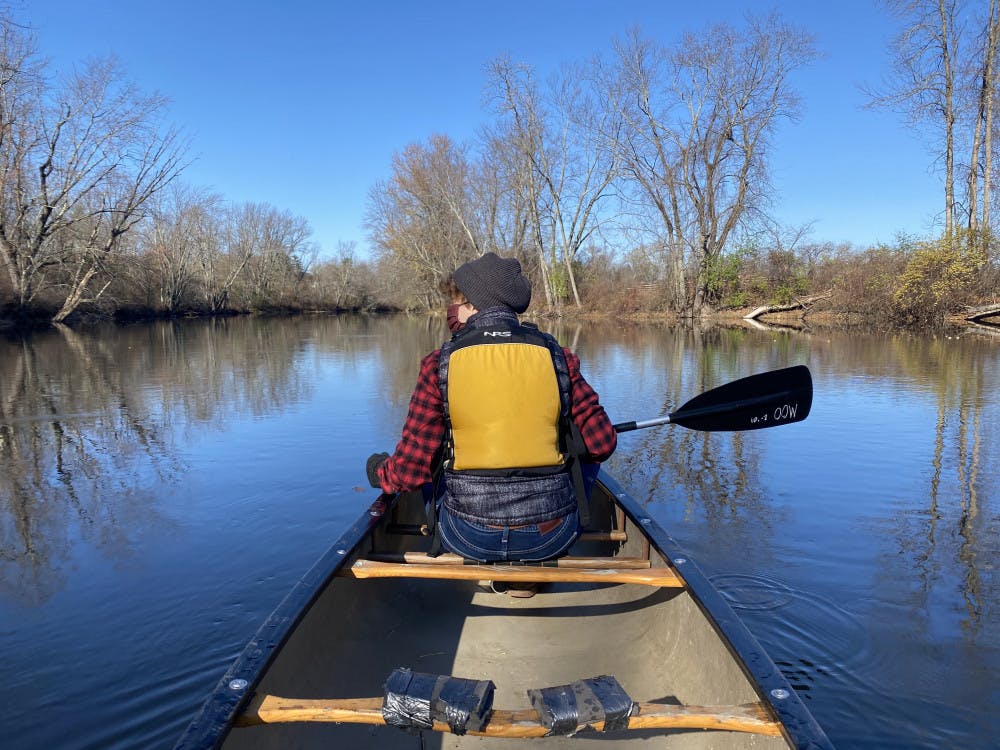Student organizations have worked throughout the year to adapt programming to Covid-19 health protocols, but travel restrictions and limited in-person activity have made it difficult for many clubs to fulfill their core missions. Organizations like the Middlebury Mountain Club (MMC), Dolci and the Ceramics Club are now having to think outside the box — or outside the mug.
Travel restrictions are the primary obstacle for outdoor groups like the MMC. Since students are unable to travel outside of Addison County, the MMC is getting creative with local trips. In the fall, the club took frequent canoe trips in the waters around Middlebury and led hikes on the Trail Around Middlebury, according to Molly Arndt ’23, president of the MMC.
Ardnt noted that transportation is another big issue this semester. Since MMC is unable to use the school’s vehicles, it has been difficult to organize trips even within the county. The result is smaller hikes, which do not elicit the same interest as pre-Covid trips.
The MMC has also struggled to get guides certified in wilderness first-aid because the instructors who usually run trainings are not allowed on campus.
“Mountain Club usually offers a few wilderness first aid courses in the year as well as a wilderness first responder course over Feb break, and we haven’t been able to do those this year,” Ardnt said. “A certification in first aid is required in order to be a guide, so a lot of our guides, myself included, don’t have the qualifications.”
This year, the MMC is only requiring that one of two guides on every trip have the certification.
Other organizations, like the student-run restaurant Dolci, are facing similar challenges with pandemic programming. In past years, Dolci has run occasional five- to six-course meals for students, but they have not been able to run any this year due to Covid-19 restrictions, according to Grace Kellogg ’22, incoming president of Dolci. Though Middlebury students are missing out on the student-run restaurant experience this year, Dolci has found a way to support local businesses that are facing grim economic realities during the pandemic.
“The positive side is that we’ve been able to pivot into alternate methods of engaging students with food and supporting local farmers and businesses. Our main event in the fall was focused on distributing bags of fresh produce and food items from local businesses to students,” Kellogg said.
A virtual Student Activities Fair complicated the process of integrating new members. Most student organizations recruit new students at the fair, where booths set up on McCullough Lawn or inside Wilson Hall allow new students to see before them the full range of clubs and organizations. At this year’s fair, conducted through individual Zoom rooms for each club and org, many new students had never heard of more specialized groups like Dolci.
“The current freshmen have never experienced and may never have even heard of Dolci, so it will definitely require some focused energy to reach out to those students next year,” Kellogg said.
Hobby and interest groups, like the Ceramics Club, have also found challenges with limited in-person activity. The maximum capacity in the wheel-throwing studio is six people, according to Lexie Massa ’21, president of the Ceramics Club. However, due to pandemic-induced stress, the Ceramics Club has seen increased popularity. Given the limited number of in-person activities available this semester, the Ceramics Club sign-up sheet fills up quickly.
“It’s honestly a really great space for people to come and do an activity that they probably wouldn’t have time to do or wouldn’t have thought to do,” said Massa.
Student organizations face membership challenges with pandemic programming

Sophia McDermott-Hughes
The Mountain Club was not allowed to drive to activities during the fall, so they ran trips nearby including canoeing on Otter Creek and hiking along the Trail Around Middlebury.
The Mountain Club was not allowed to drive to activities during the fall, so they ran trips nearby including canoeing on Otter Creek and hiking along the Trail Around Middlebury.
Comments



